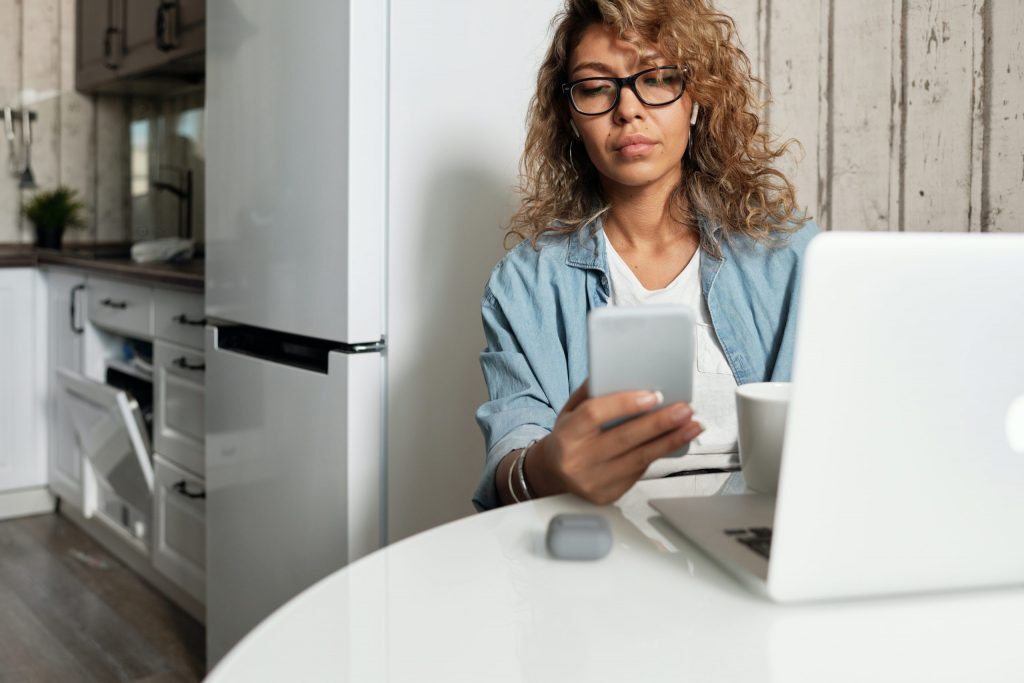From churchgoers to nursery school children, video calls, conferences and quizzes have become a lifeline at this time. But this has also meant the boundary between work and family life has become blurred and unbalanced – with notifications, calls and messages, interrupting mealtimes and conversations.
And herein lies part of the problem, because research has found that breaks from work where we engage with our smartphones – to play games or scroll through social networks – are less effective or restorative than conventional breaks such as walking or napping.
This is in part why we have started a new research project to find out how increased screen use during the pandemic – for both learning and downtime – is affecting student wellbeing and concentration levels. Existing research shows that students who are addicted to their phones have lower level of self-regulated learning, low level of flow – or feeling “in the zone” – and are constantly interrupted by applications on their phones when they are studying. So we want to see if enforced break time – away from all screens – could help.
What the research says
Studies have found that by three months of age, about 40% of children regularly watch television, DVDs, or videos. And by 24 months, this number rises to 90%.
Research from the US has also found that between the ages of eight and 18, children spend on average seven hours and 11 minutes a day engaging with screen-based entertainment. While research from Ofcom shows that, on average, adults in the UK check their phones every 12 minutes.

In this sense, lockdown isn’t helping those who are already addicted to their screens. The need to constantly check the news is also creating new screen addicts – linked with increased levels of stress, anxiety, insomnia, and even trauma.
Research proves that too much screen time results in headaches, migraines, eyestrain, obesity and sleep deprivation. It’s thought to also cause behavioural problems in children, difficulties at school, and increased levels of violence.
How to de-screen
All of which highlights the importance of taking a break from screens – particularly during this time of increased stress. Below are some tips to help.
Take a day off: Put one day a week aside to give yourself and your gadgets a rest. Turn off the laptop, TV, tablet and smartphone and spend some quality time “offline”. Cook a meal for your family, do some gardening, work on your hobbies, tick off some chores on your to-do list – anything as long as it’s away from the screens.
Don’t carry your phone around: Your phone does not have to permanently reside in your pocket, this just encourages bad habits like checking it on the toilet or at the dinner table. Being “deviceless” helps you to live in the moment, unwind and focus more on what you’re doing – without worrying about what might be happening “out there”.

Allow yourself to be bored: Experiencing boredom off-screen is a natural path to creativity. We can use our boredom as fuel to motivate us to achieve tasks we have been putting off. This will allow your dopamine receptors to recover from all that tech use as well – excessive screen use causes too much dopamine to flood the brain which has been linked to addictive behaviours, changes in mood, increased stress and difficulty sleeping. Time away from the screen can also give you the chance to think about what you want to accomplish and how.
Try a family switch off: Set aside some device-free time into your family schedule a few times a week. On certain days, after 6pm the whole family should switch off all devices. This will push everyone to have a few hours of quality screen-free time before bed.
Step away from the screen: It might also be worth thinking about how to counterbalance all that screen time. For every hour you spend working, you could take ten minutes to walk around the house, make a cup of tea, jump on a trampoline, go for a quick run, do some stretches – anything to get you up and moving. This will help to bring some separation into your life – allowing you to switch off and think – without all those notifications and alerts.

All of this is important because studies show that exceeding two hours of recreational screen time directly affects our brains, resulting in slower processing speed, shorter attention span and deterioration in memory. Reduced screen time, on the other hand, sharpens our concentration and allows us to complete tasks more efficiently and manage our time more effectively.
In fact why not start now: put down your phone, tablet, or whatever you are reading this on, look at something in the distance to give your eyes a good stretch, and get up and do something else – your body and brain will thank you for it.
- is Lecturer in Digital Enterprise, Teesside University
- is Teaching Fellow, Durham University
- This article first appeared on The Conversation




